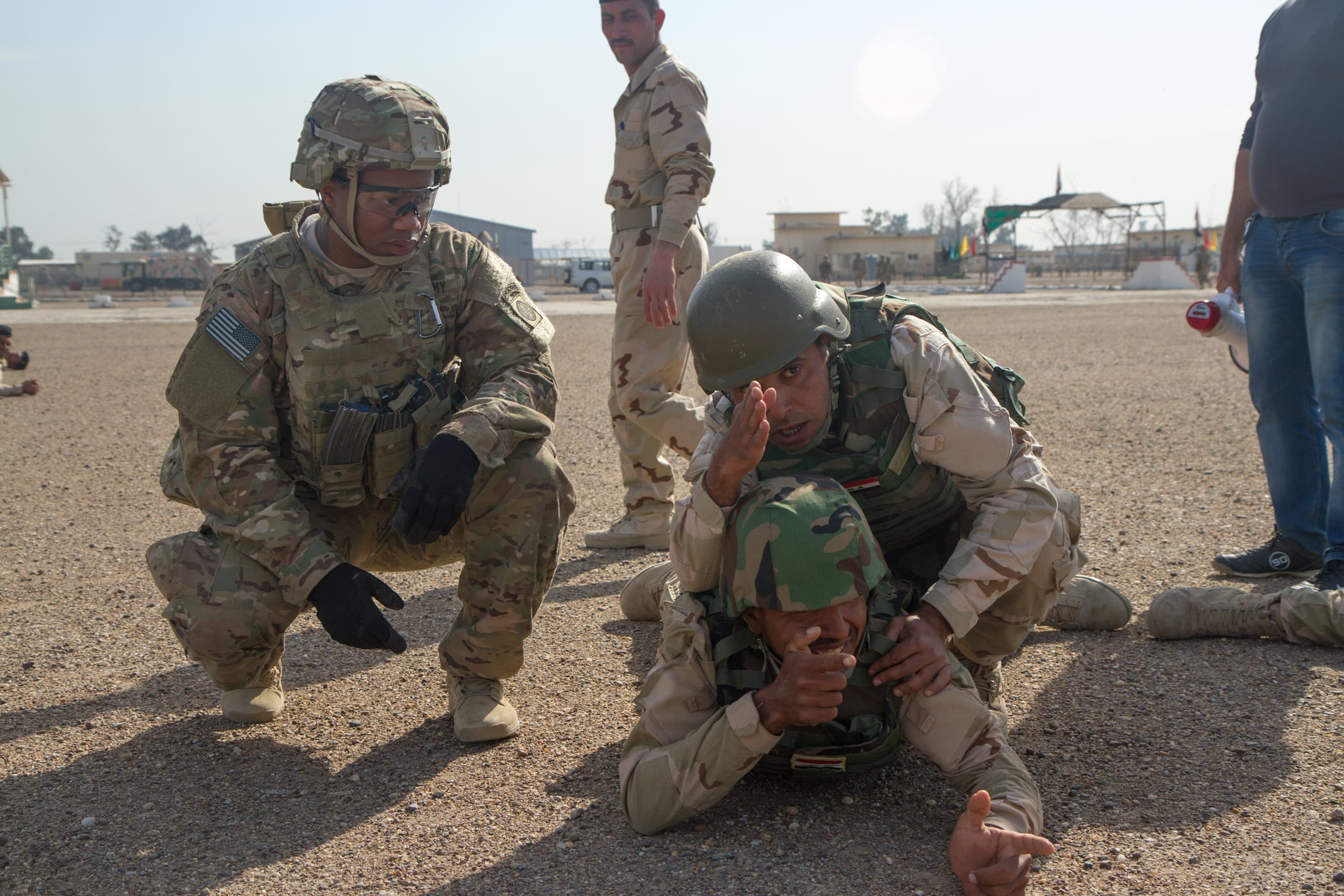A message from an Iran-backed militia to its fighters to suspend attacks on U.S. troops in Iraq and Syria hasn’t changed the Pentagon’s calculus for retaliatory strikes following Sunday’s deadly attack on U.S. troops in Jordan, a spokesman told reporters Tuesday.
The statement from Kataib Hezbollah, first reported by Reuters, came within hours of President Joe Biden telling reporters Tuesday that he had decided on a response to the fatal drone attack that killed three U.S. soldiers, one the Defense Department said “has the footprints” of a Kataib Hezbollah operation.
“I don’t think we could be any more clear that we have called on the Iranian proxy groups to stop the attacks,” Air Force Maj. Gen. Pat Ryder told reporters Tuesday. “They have not, and so we will respond in a time and manner of our choosing.”
There have been three attacks on troops in the Middle East since Sunday, Ryder added, for a total of more than 160 since October.
The U.S. targeted Kataib Hezbollah facilities during a strike within Iraq in late November.
Sunday’s fatal attack on the Tower 22 base in Jordan was the first to result in serious injuries and death. Three U.S. soldiers were killed when a drone struck a barracks building on the base, while eight were airlifted to Baghdad for treatment.
Three of those troops were transported to Landstuhl Regional Medical Center in Germany on Monday, where one is in “critical but stable condition” Ryder said, while the others are in fair condition.
RELATED

While it remains to be seen whether attacks in Iraq and Syria will drop, there has been a small pause in attacks from Houthi militants since Sunday.
That pause appeared to end Tuesday evening, when U.S. Central Command announced that the Navy destroyer Gravely shot down an anti-ship cruise missile fired by Iran-backed Houthi rebels in Yemen.
Meghann Myers is the Pentagon bureau chief at Military Times. She covers operations, policy, personnel, leadership and other issues affecting service members.





